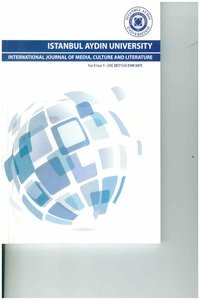Öz
Kaynakça
- Morrison, T, (1987). Beloved: A Novel. New York: Knopf.
- Morrison, T, (1991). Beloved: A Novel. New York: Penguin Books.
- Morrison, T, (2014). Beloved.
- Poovey, M, (1998). History of the Modern Fact. Chicago: University of Chicago Press.
- Porter, M. A O'Reilly, and Patricia M. S. M, (2005). Motherhood: Power and Oppression. Women's Press.
Öz
At a time when women around the world were staging a fight against
gender discrimination and calling for equal rights with men in their various
societies, black American women also tried to make their voices heard. As
history holds it, unlike other women especially in the west, their story is
different because it was shaped by slavery, which made them not only inferior
to men but to women of other races. Coupled with the roles of housekeeping and
motherhood assigned to women, thus sidelining them from decision making issues
in the society, the African American woman also had to deal with the
belittlement, violence and segregation from the white society during and after
slavery. In this regard, Tony Morrison like a host of other black writers, took
it upon themselves to tell the stories that were often ignored or could not be
perfectly told by men or white writers. Though Morrison’s Beloved is set during slavery. In Beloved, Morrison depicts
the adverse side of motherhood that many writers of the time failed to
consider. By attempting to exercise her motherly role in a period of extreme
suffering, Sethe loses her identity and in the process also suppresses that of
Denver her daughter. This is occasioned by the maternal ties that link Sethe to
her children that preclude her individuation and spoil her self-development.
Sethe sacrifices her being. Indeed, we see throughout the novel that all her
efforts are directed at atoning for her losses as a daughter and re-establish
herself as a good black mother based on the society’s conceptualizations. My Article investigates how Toni Morrison
portray the issue of domesticity, motherhood and violence in their novels Beloved
and The Color Purple, during and after the days of slavery. The thesis
also will provide the possibilities that lead to the characters emancipation.
Anahtar Kelimeler
Motherhood Domesticity Racism Black Feminism African-American Literature Violence
Kaynakça
- Morrison, T, (1987). Beloved: A Novel. New York: Knopf.
- Morrison, T, (1991). Beloved: A Novel. New York: Penguin Books.
- Morrison, T, (2014). Beloved.
- Poovey, M, (1998). History of the Modern Fact. Chicago: University of Chicago Press.
- Porter, M. A O'Reilly, and Patricia M. S. M, (2005). Motherhood: Power and Oppression. Women's Press.
Ayrıntılar
| Konular | Sanat ve Edebiyat |
|---|---|
| Bölüm | Araştırma Makalesi |
| Yazarlar | |
| Yayımlanma Tarihi | 21 Haziran 2017 |
| Yayımlandığı Sayı | Yıl 2017 Cilt: 3 Sayı: 5 |
All site content, except where otherwise noted, is licensed under a Creative Common Attribution Licence. (CC-BY-NC 4.0)


